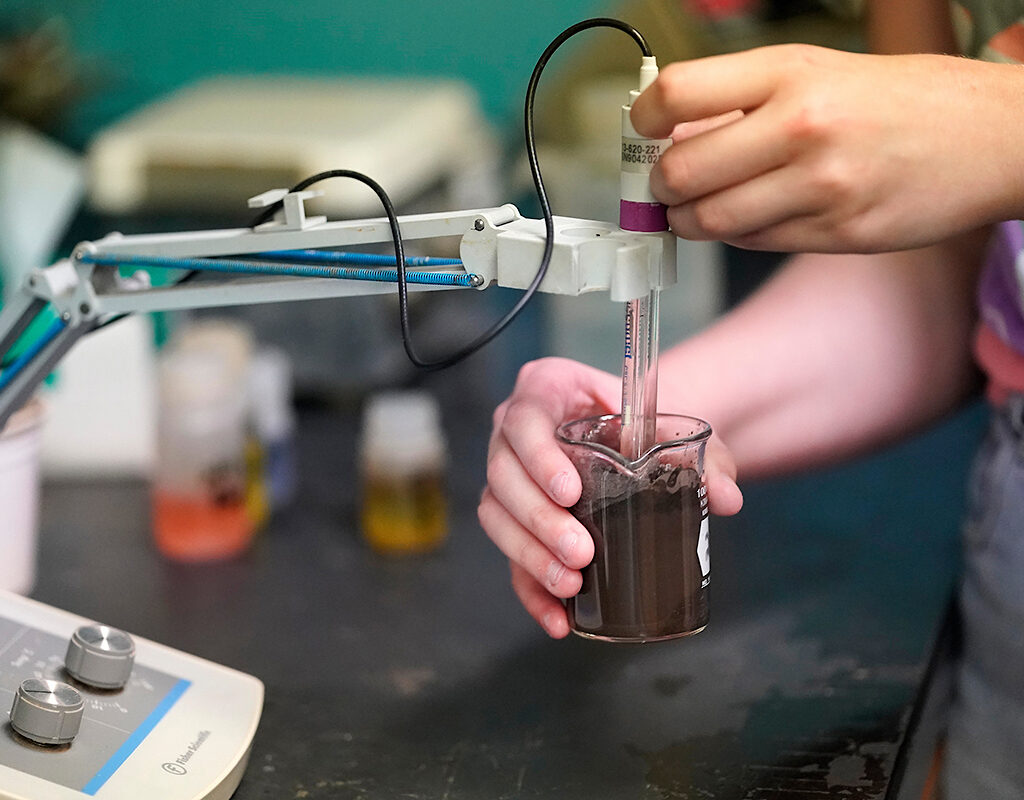Soil Analysis for individual gardeners, homeowners or landscapers
- Type
- Service
- Offered by
- Soil, Water, and Forage Testing Lab

Overview
Contact
2610 F&B Road
College Station, Texas 77845
The Texas AgriLife Extension Service Soil, Water and Forage Testing Laboratory is housed in the Department of Soil and Crop Sciences at Texas A&M University. The laboratory began operations in 1946 primary as a soil testing laboratory. Over the next 34 years, irrigation water testing, plant and forage analysis, and other clientele requested analyses have been added.
The laboratory's primary mission is to provide research based analysis and non-bias recommendations for agronomic and non-agronomic soil analysis, plant tissue analysis, forage nutritive analysis, and non-drinking water analysis. The laboratory also aids the research and extension communities with analysis needs. We also work closely with a number of Texas A&M University service laboratories, other state agency laboratories, and private laboratories with method development, troubleshooting and quality assurance/quality control issues, as well as, forwarding clientele to insure their needs are met.
Need a Texas accredited NELAC laboratory? The Texas Commission on Environmental Quality listing of accredited laboratories can be downloaded here: Accredited Laboratory List (DOCX).
More choices in Crops & Produce
- Publication
Today Master Gardeners are active in all 50 U.S. States and eight Canadian provinces. The heart of the Texas Master Gardener program is the dedicated, passionate volunteers who are willing to share their knowledge with anyone interested. 2019 Edition.
- Course
This 8-hour course is designed to satisfy the Apprentice Training Requirements as specified in Rule 7.132 (i) (2) and will cover common termites in Texas along with other wood-destroying insects.
- Course
Those who participate in this course will learn about herbicides, different modes of action, and different herbicide families. Pesticide applicators looking to receive 1 hour of credit for TDA pesticide general CEU can be earned with this course.
- Course
Prepare to take the Private Pesticide Applicator Exam administered by the Texas Department of Agriculture with this course designed for pesticide applicators in Texas. Private pesticide applicators use or supervise the use of restricted-use or state-limited-use pesticides or herbicides to produce an agricultural commodity.
- Publication
Created by teachers, this multifaceted garden, nutrition, and physical activities curriculum is evidence-based and academically rich.
- Publication
This 4-week curriculum equips early childhood teachers with daily engaging lessons, group activities, and journal prompts to enrich your classroom while making learning fun!
